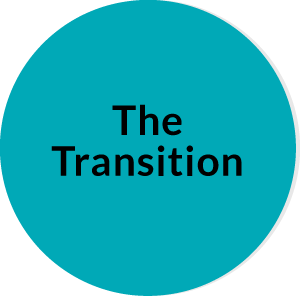Compassion Note
The word “transition” is often defined as “passing through a place without staying,” but that isn’t an accurate definition of what happens at the end of a child welfare case. Children can return home to their parents, or you may continue to take on their care as a guardian or foster parent.
Regardless of the type of transition, in most cases, both caregivers and parents should remain in the child’s life in some role. Children benefit with more supportive adults around them. When a case closes, the compassionate caregiver’s job is not done. Making sure the child’s transition is as supported as it can be is an important step. Parents may want you to help and stay in contact more than you expect, and other times they may want your help by stepping away for a while. The important thing is that you actively learn what everyone involved may need and continue to provide care in the ways you can.

The following resources provide strategies and tips for how to successfully transition at the end of a case.
Video Resources
Questions You Can Ask the Parents When It’s Time to Transition
- Are there specific things you’d like to know? Food preferences? Bedtime schedule and rituals? Medications, doctors?
- Would you like to know what our schedule at home was like?
- Would you like to know how school was going for the child?
- Would you like to know what worked when the child was having difficulties?
- What will you need help with the most when your child comes home?
- How can I support you during transition?
- Would you like to stay in contact after transition?
- How would you like to stay in contact after the child returns home?
